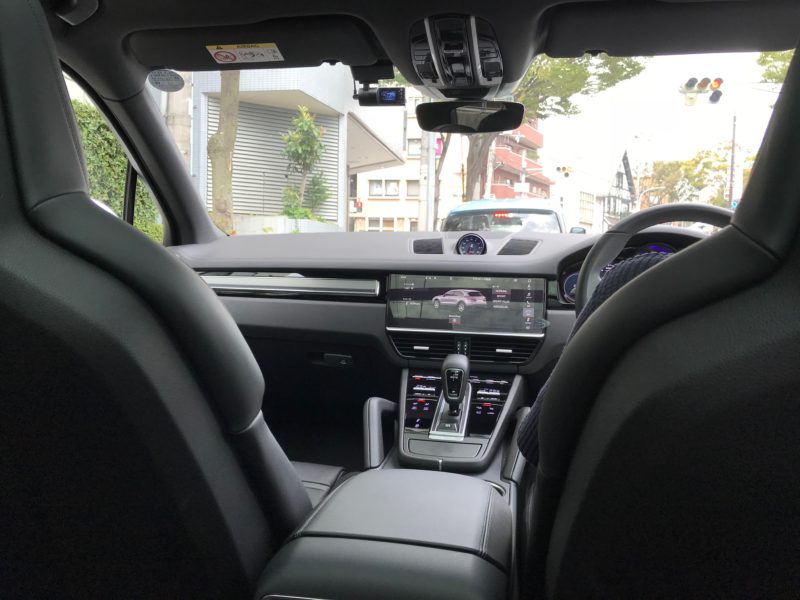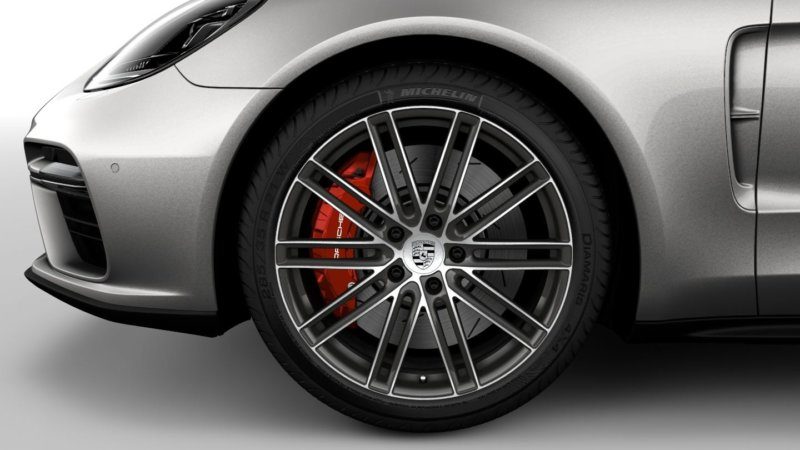Is Porsche Brake Squeal a Defect? No, It’s the True Mark of Porsche Brakes.
公開日:2018.10.27

コンテンツ
Porsche Brakes Are Squeaking
The other day, while waiting at a red light, a Porsche appeared in the opposite lane. Since their light was red too, the Porsche driver pressed the brakes, and I heard a loud “squeeeak” sound, just like when you slam the brakes on a bicycle.

I blurted out, “What’s that noise? Are the brakes broken or something? lol” and my husband immediately replied,
That’s not broken at all. In fact, that squeal is a sign of how high-performing Porsche brakes are. Some even say that the brake squeal is the “true mark of Porsche.”
Huh… (-_-)
He continued,
Come to think of it, Porsche uploaded a video on YouTube explaining that “brake squeal is not a defect.” Watching it will help you understand Porsche brakes better.
He sent me the link later. I opened it right away, but as usual, it was explained in English… (-_-)(I’m not great at English, so translating while watching takes quite some time.)
I watched the video with English subtitles, but since I didn’t really understand how brakes work, terms like “brake rotor” and “pads” didn’t click. So, I first researched “how a car stops”, and only then was I able to grasp the video’s content (lol).
How Do Brakes Work?
A car slows down or stops because of the principle of “friction.” When you press the brake pedal, hydraulic pressure changes in the cylinder, which is transmitted through brake pipes and hoses. This pressure pushes the brake pads against the brake discs, creating friction that stops the car. In other words,
“The kinetic energy generated by friction is converted into heat energy, which brings the car to a stop.”

Since friction is involved, brake parts naturally wear down. Generally, “if you hear a squealing noise when braking, it could indicate worn parts or low brake fluid, which is dangerous and requires immediate dealer inspection.”
Many people share this understanding and assume that a luxury car like Porsche wouldn’t make such noises. So when new Porsche owners hear squealing brakes right after purchase, it often leads to complaints like “The brakes are defective on a brand-new car!” or “It’s a malfunction!”
Let’s Watch Porsche’s Video
With this in mind, I rewatched Porsche’s explanatory video. Porsche starts by saying,
This noise is often misunderstood as a fault, but that is a rare case.

Porsche brakes are said to be the best in the world, and they are designed and engineered to deliver consistent braking performance under any condition—whether on a high-speed circuit or slow city driving.
Therefore, Porsche’s brake discs are designed significantly larger than average cars, maximizing the contact area with the brake pads to increase friction and ensure safe stopping at all times. Also, high-quality brake discs and pads are used to maintain high friction levels even across a wide temperature range.

However, the larger the friction surface, the more likely the “stick-slip phenomenon” occurs. This phenomenon is “a self-excited vibration caused by microscopic sticking and slipping on the friction surface,” which generates noise. When this resonates with the brake rotor, it sounds like a loud squeal, almost like a speaker.
In typical cars, brake discs aren’t as large, nor are the brake pads and rotors as high-quality and heat-resistant as Porsche’s, so squealing is less common.
In other words, hearing brake squeal is a sign that “Porsche brakes are high-quality and high-performance.”
Of course, larger discs weigh more, but Porsche continuously improves and lightens parts by using materials like carbon in the discs.

According to the video, “Porsche’s current brake system is class-leading,” but Porsche engineers’ ultimate goal is “to achieve high performance while technically eliminating squeal.”
Brake Strategy
Later, my husband sent me a link to Porsche Japan’s page about brakes(lol), which states that “Porsche sets the highest industry standards for braking performance. All brake systems must ultimately meet these standards.”
During development, various tests are repeated, but the toughest is the braking test at the Nardo high-speed test track in Italy. This test repeatedly accelerates the vehicle from 90 km/h to 230 km/h, then quickly applies the brakes to stop abruptly. This cycle is repeated 20 times. “By the 15th braking, the disc temperature reaches 750°C. To test cooling efficiency, the disc is cooled to 150°C between the 15th and 16th braking. The last 5 brakings test whether the friction coefficient changes—that is, whether the brakes perform as well as at the start.”
Amazing… they really go that far… (;゚Д゚)
Also, Porsche brake calipers are color-coded: “standard brakes are black,” “reinforced S brakes are silver or red depending on the model,” and “PCCB brakes are yellow.”
*Porsche Japan Official Site “Brake Strategy”
By the way, my husband said,
My Boxster, which I bought three years ago, used to squeal a lot when new. I personally loved it because it felt like “this is Porsche braking.” But after about 3,000 to 5,000 km, it stopped squealing completely…
He sounded a bit wistful. While many people say “It’s a defect,” he actually wishes it would squeal more—guess he really is a Porsche geek (lol). By the way, here’s the Porsche video “Brake Squeal Explained.”
このブログが気に入ったらフォローしてね!


Comment ( 0 )
Trackbacks are closed.
No comments yet.